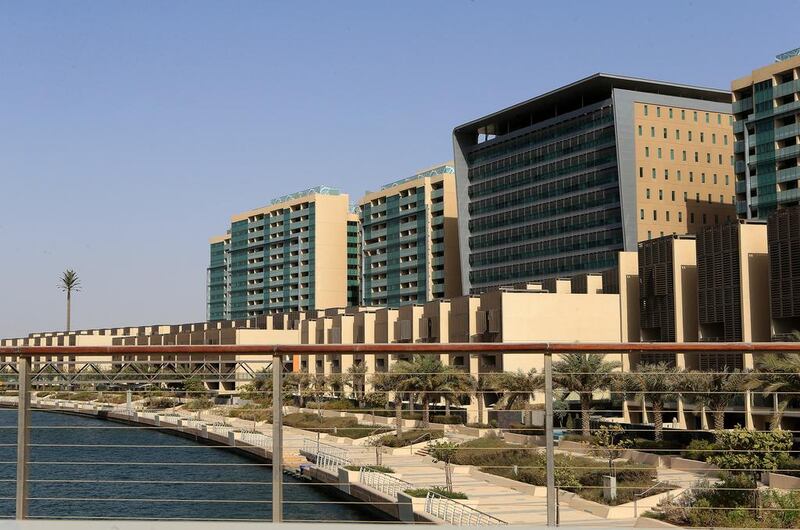The new municipality charge being levied against rental contracts in Abu Dhabi is likely to boost government revenue by about Dh612 million a year, according to National Bank of Abu Dhabi.
The fee, which will be added as a monthly charge to utility bills, has been introduced as another method for generating revenue to help plug the emirate’s budget deficit, according to a note from the bank.
NBAD’s economists based their figure on the forecast that Abu Dhabi would have 255,000 units on the market by the end of 2016, that they would attract an average rent of Dh100,000 per year, and that 80 per cent would be occupied.
“It is evident that the government is looking for recurring and sustainable revenue streams that will continue to increase steadily over time,” it said in its note. “It seems likely that more such measures will be implemented, across various aspects of the economy, which in aggregate will deliver – in our opinion – not just meaningful but substantial incremental and diversified revenue for the government.”
A new charge on hotel stays has also been introduced.
David Dudley, the head of the property consultancy JLL’s Abu Dhabi office, said that the property market was currently in a “fairly fragile” stage of its cycle.
“Over the past few years, there has been various ways in which the cost of living has increased – increases to rents, to the cost of goods and the reduction of fuel subsidies.
“In the current environment of low oil prices, the government needs to reclaim more money to subsidise municipal costs, so I can understand why they are thinking about it. But adding further to the cost of living could have a detrimental affect on demand,” he said.
D M, 28, a French national who has lived in Abu Dhabi for two years, said: “Most expats did not receive any pay increase this year, and we are all already subject to a rent increase of at least 5 per cent every year.
“This will directly impact my savings and my quality of living, which are the two main reasons why I decided to move to Abu Dhabi.”
The city’s developers shrugged off any potentially negative impact to investment sentiment. A spokesman for Aldar said that it was unlikely to affect its operations, stating that the charge was emirate-wide, and is in line with costs already imposed in Dubai.
“It’s a marginal cost, and I think people understand that it’s not going to make a difference if you’re renting something for Dh200,000 or Dh250,000.”
Sameh Muhtadi, the chief executive of Bloom Holding, agreed. He said it may have a slight impact on tenants, but many of its schemes – including its new affordable housing project planned near Abu Dhabi airport – were on offer only to UAE nationals who are exempt from the charge.
“And as a UAE company, if we’re leasing out to UAE nationals, it’s not going to affect us either.”
Anthony Mallows, the executive director of the Masdar City project, argued that the charge was a sign that Abu Dhabi’s property market is maturing.
“It’s an indication that the regulatory environment is maturing around real estate.”
He said that when increased regulation and zoning has been introduced in US markets, for example, there is initial negativity because of a fear of increased costs, but “good zoning actually increases property values and maintains them”.
mfahy@thenational.ae







